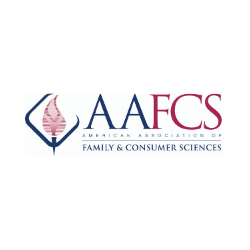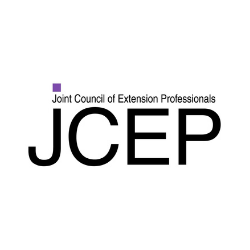2011 Poster Sessions/Showcase of Excellence
Each showcase station consists of one side of a free-standing vertical display board with dimensions 44.25" tall by 90.75" wide (approximately 28 square feet of display area), and positioned above a 6' wide skirted table to accommodate handouts and other Showcase materials. The display board accepts push-pins and/or Velcro for your display planning.
*Schedule subject to change
Wednesday, September 28, 2011
12 P.M. — 2:30 P.M.
Thursday, September 29, 2011
8 A.M. — 10:30 A.M.
Wednesday, September 28, 2011
12:00 P.M. — 2:30 P.M.
Social Media Utilization based on NM FCS County Agents Needs Assessment 2009
Presenter(s): Mohd Abdul-Rahman (NM)
Table # 1
This poster shares findings on Social Media and Internet-related utilization based on New Mexico Family Resource Management Needs Assessment 2009 conducted on Home Economics county agents.
A Road Map to Active and Healthy School Environments
Presenter(s): Lynda Johnson (MO)
Table # 2
Explore fundamental strategies that help schools create a wellness plan, environment, and culture that teach active lifestyles and healthy eating habits, where "the healthy choice, becomes the easy choice".
Footsteps to Wellness
Presenter(s): Christine Kendle (OH)
Table # 3
Incentivized wellness programs help engage communities in physical activity. Footsteps to Wellness tracks the growth of a walking program from the vision of one to the realization of a county.
Getting Healthy: Gardening and Spicing It Up With Herbs
Presenter(s): Martha Maddox, Brooke Moffis (FL)
Table # 4
Workshop participants increased knowledge about growing and using herbs helped them decrease sodium consumption, lower blood pressure, modified eating habits and an increase awareness of herb substitutes to enhance flavor.
Diet, Chronic Conditions, and Physical Activities of Limited Income Seniors
Presenter(s): Mary Blackburn (CA)
Table # 5
Prevalence rates of disease conditions and nutrition and wellness education needs of limited income seniors (N=377) were assessed; disease conditions were correlated with special diet(s), physical activity, age, and ethnicity.
Identifying Common Evaluation Measures for Multi-Site Use
Presenter(s): Daniel McDonald, Pamela Payne (AZ)
Table # 6
This poster describes the use of common evaluation instruments across varying programs located in different states. The process of instrument identification and goodness of fit will be presented.
How to Avoid Falling for a Jerk: Promoting Healthy Relationships with Teens
Presenter(s): Naomi Brower (UT)
Table # 7
Learn strategies and tips on implementing a nationally recognized curriculum called How to Avoid Falling for a Jerk utilized to reach non-traditional urban youth while strengthening community partnerships.
Are We There Yet? Are Teens Learning to Lead?
Presenter(s): Renee Myers (AR)
Table # 8
Youth Leadership training program in its 11th year. Poster will show evaluation results gathered over multiple years and discuss successes and needs for improvements.
All Talk and No Action: Overcoming Inertia in the Workplace
Presenter(s): Kirk Bloir (OH)
Table # 9
Introduces Kegan and Lahey's "immunity to change" dynamic to help participants understand connections among private beliefs, public work and meaning-making.
Building Healthier Schools Through School Gardens: Ways that Extension Can Help Grow the Team
Presenter(s): Alexandra Grenci (NJ)
Table # 10
School gardens can be effective tools to teach children about healthy lifestyles, but it takes a team to establish/maintain them. Learn how Extension professionals can contribute as community partners.
Community Farmer's Market - Healthy Foods and Food Safety Education
Presenter(s): Susan Howington (GA)
Table # 11
Community Farmers Market provides consumers with a place to purchase quality produce while becoming aware of Cooperative Extension. Discover ways to improve the health and well-being for local residents.
Living Sustainably - Putting Sewing Skills to Use
Presenter(s): Sandra Aamlid, Donna Bittiker, Laurel Tangen (SD)
Table # 12
Glean ideas for sewing workshops ranging from guidelines for teaching beginner sewers, simple project patterns, assembling a Sewing/Mending Mobile Lab and tips for "Extending the Wear Through Simple Repair".
Unique Professional Development Opportunities That Link Agents Across State Lines
Presenter(s): Heather Greenwood (HI), Stephanie Toelle, Diana Converse, Betty Miller, Maisielin Ross, Karen Headlee
Table # 13
Professional development comes in many forms. This poster explores the linkage between agents in two states resulting from a study tour that focused on intergenerational programs.
Teaching Children to Save
Presenter(s): Elaine Courtney (FL)
Table # 14
Teaching children about savings has been conducted annually since 2004. During that time, 1733 youth have made savings deposits of $174,497.66 into new or existing accounts.
Financial Fundamentals for Teens and Others
Presenter(s): Lyle Hansen, Marilyn Bischoff, Luke Erickson, Karen Richel, Beverly Healey(ID)
Table # 15
Extension educators developed and led 18 free one-day workshops for 340 high school teachers on how to use the National Endowment for Financial Education's High School Financial Planning Program.
Safe and Healthy Food Preservation: Educating Our Communities
Presenter(s): Jeanne Brandt, Carolyn Raab, Nancy Kershaw, Jenny Rudolph (OR)
Table # 16
A recent explosion of interest in home food preservation has been fueled by many factors. Oregon State University Extension Service responded to the demand.
The Healthy Food Slide Rule: Foods in Appropriate Amounts for Healthy, Active Families
Presenter(s): Barbara Abo, Linda Gossett (ID)
Table # 17
Youth, low-literate adults and limited English audiences learned how to count portions, measure serving sizes and the importance of physical activity each day using the Healthy Food Slide Rule.
Fun (and Learning) with Functional Foods for Youth
Presenter(s): Sherri Cirignano (NJ)
Table # 18
The Fun(ctional) Foods for Living Well Educational Program provides interactive lessons on four plant foods and puts youth in the director chair to produce video podcasts about these foods.
Eating from the Garden
Presenter(s): Karen Elliott (MO)
Table # 19
Eating from the Garden is a nutrition and gardening program for fourth and fifth graders. Presenter will share new curriculum, program design, materials, and evaluation results.
Whole Grains Education
Presenter(s): Susan Hansen (NE)
Table # 20
Whole grains education teaches youth and adults how to identify whole grains and include them in the daily diet for better health.
Teaching Food Preparation and Nutrition to Limited English Speaking Participants
Presenter(s): Melanie Jewkes, Sara Oldroyd (UT)
Table # 21
This presentation will discuss food culture challenges met by refugees resettled in the United States, and show what was learned by teaching limited English speaking participants through SNAP-education.
HUD Approval for Housing Services: What Ohio Has Learned
Presenter(s): Nancy Stehulak (OH)
Table # 22
What housing services are being offered through your state to support those in need of pre-purchase education, foreclosure intervention or loan modifications? How do you provide those services?
Exercise Program Improves Blood Pressure and Activity Level for Those At-Risk for Diabetes
Presenter(s): Carol Turner, Lourdes Olivas, Judy O'Laughlin, Karim Martinez, Barbara Brokaw, Glenda Belcher, Connie Moyers (NM)
Table # 23
Keep Moving Keep Healthy with Diabetes attracts people with and at-risk for diabetes into a community-based exercise program while improving level of physical activity and biomarkers in all participants.
Using Virtual World Technology to Engage Learners
Presenter(s): Joey Peutz, KD Hatheway-Dial, Lori Wahl, Brian Clevely, Nancy Deringer, Karen Richel, Michael McMullin (ID)
Table # 24
Discover how an avatar can 1) increase cross disciplinary communication and 2) assist teens/young adults to apply nutrition knowledge and financial management knowledge in a fun, game-like virtual world.
Hypertension Curriculum Used in Computer Training
Presenter(s): Shelley Swenson (FL)
Table # 25
Learn how to incorporate meaningful subject matter into computer training to reach new audiences. Hypertension curriculum was used to create handouts, power points and spreadsheets utilizing Microsoft Office.
Connecting for Baby
Presenter(s): Maude Kelly (MO)
Table # 26
Young couples who choose to improve relationship and communication skills can see results such as happier and more content children, more relaxed parenting and a stronger family life.
2011 National Award: Extension Educator of the Year
Presenter(s): Luann Boyer (CO)
Table # 27
Through development of strong community partnerships with agencies, organizations and businesses, Luann Boyer has leveraged limited resources to develop innovative programs addressing the needs of families in rural Colorado.
2011 National Award: Early Childhood Child Care Training Award
Presenter(s): Kathleen Splane (DE)
Table # 28
Using a unique on-line format, Healthy Habits, Healthy Start, teaches childcare providers in Delaware about the importance of Healthy Eating and Physical Activity for the children in their care.
2011 National Award: Extension Housing Outreach Award
Presenter(s): Laurel Kubin, Karen Massey, Jacque Miller, Glenda Wentworth, Rhonda Follman, Jean Justice , Lois Illick, Gisele Jefferson, Kaye Kasza, Mary Snow, Anne Zander, Sheila Gains, Wendy Rice, Janet Benavente, Cary Weiner (CO)
Table # 29
Colorado Extension FCS Agents partner with Energy Outreach Colorado and other agencies to teach low income families and seniors how to save money on utility expenditures.
2011 National Award: Marketing Package
Presenter(s): Janae Cook, Betty Greer, Rich Maxey, Chuck Denney, Lorna Norwood, Doug Edlund, Liz Ferrell, Kathy Atwood (TN)
Table # 30
Through mass marketing a county-wide wellness campaign, Get Healthy Hartsville allowed this small town to do just that. Designed for public awareness and health education, GHH participants lost 388 pounds.
2011 National Award: Extension Housing Outreach
Presenter(s): Elizabeth Gorimani, Sonji West (FL)
Table # 31
The Home Rehabilitation program is targeted at Gadsden county families with homes that need repair. Program is funded in partnership with the community development office through community development block grants.
Thursday, September 29, 2011
8:00 A.M. — 10:30 A.M.
Nutrition Edition
Presenter(s): Elizabeth Shephard (FL)
Table # 1
The Nutrition Edition newsletter has been an effective tool used by teachers to enhance nutrition education. The newsletter mixes nutrition education with core curriculum to help teachers meet statewide standards.
Creative Ways to Teach Children about Healthy Food Choices
Presenter(s): Marnie Spencer, Laura Sant (ID)
Table # 2
Extension educators developed age-appropriate nutrition lessons from research-based materials to increase childrens' knowledge of healthy foods. Multiple teaching methods were used. Results indicate increased knowledge and intended behavior change.
Go Wild with Fruits and Veggies! A Nutrition Education Program for Elementary Students
Presenter(s): Sara Van Offelen, Mary Schroeder, DeeAnn Leines (MN)
Table # 3
Go Wild with Fruits & Veggies! is a nutrition education program designed for elementary school youth. Animal characters and interactive activities teach why fruits, vegetables and physical activity are important.
School-Based SNAP-Ed Nutrition Educator Pilot Program
Presenter(s): Linda Wells, Kari Bachman, Carol Turner, Corina Chavez-Neish (NM)
Table # 4
Teacher match enables CES to dedicate an entire SNAP-Ed Nutrition Educator position to one elementary school. The paraprofessional meets with each classroom once a week throughout the school year.
Venison: From Field to Table
Presenter(s): Beth Gaydos, LuAnn Duncan, Joyce Shriner, Kathryn Dodrill, Polly Loy (OH)
Table # 5
Participants in venison workshops learned how to safely field dress, cut, and handle the meat plus preserve the meat using approved procedures for canning, freezing, and making jerky or sausage.
Quality for Keeps, Home Food Preservation
Presenter(s): Glenda Kinder, Tammy Roberts, Karen Elliott, Susan Mills-Gray (MO)
Table # 6
"Quality for Keeps: Home Food Preservation", a curriculum of lessons and hands-on recipes for 1) harvest and storage, 2) pressure canning, 3) canning salsa, 4) pickles, 5)jams, and 6) freezing/drying.
Teaching Personal Finance with Case Studies
Presenter(s): Barbara O'Neill (NJ)
Table # 7
Poster will describe how case studies can teach personal finance concepts as a small group activity. CDs containing case studies and suggested solutions will be available at a nominal charge.
Two Cent Tips for Delaware - An Email Newsletter
Presenter(s): Maria Pippidis (DE)
Table # 8
Helping Delaware citizens make better consumer financial decisions is the goal of this emailed newsletter. Evaluations show readers are ready for more information.
Reaching New Audiences Through Interactive Websites
Presenter(s): Charlotte Coffman (NY)
Table # 9
Dress a Firefighter and Go Figure! are examples of interactive websites that attract and engage users, allowing them to study at their own pace and at any location.
ACT: A Community Training for Grassroots Leadership Development
Presenter(s): Cathy Martinez, Juanita O'Campo-Waits (AZ)
Table # 10
This session will explore strategies for development of grassroots leadership capacity in diverse communities. The ACT curriculum has been tested with Native American, Hispanic, and other audiences.
Using Family and Consumer Sciences Resources as a Foundation to Build Community Leaders
Presenter(s): Joann Lindsay Milam, Laura Gillman (GA)
Table # 11
Meeting a need identified by a rural community, faculty connected to the College of Family and Consumer Sciences used its vast resources to build a successful yearlong leadership development program.
Helping Military Families: Clearinghouse for Military Family Readiness
Presenter(s): Cheryl Miller (PA)
Table # 12
Can I find information quickly and easily? Is the information evidenced based? Clearinghouse for Military Families Readiness is the place to go for program materials to assist military families.
Using Social Media for Innovative Education and Collaboration
Presenter(s): Kendra Zamojski, Dr. Pete Vergot, Lisa Leslie, Elaine Courtney (FL)
Table # 13
Expand your educational efforts with technology. Learn ways to use technology including social media to provide innovative education, to keep audiences engaged beyond class and to easily collaborate with colleagues.
4-H Holiday Bake Off
Presenter(s): Jacqueline Schrader, Melanie Thomas, Stephanie Conner (FL)
Table # 14
Youth in the 4-H Bake Off learn valuable life skills by preparing and displaying products. They are judged for creativity and quality and participate in oral reasons with a judge.
New Mexico 4-H Home Economics School
Presenter(s): Mindy Turner (NM)
Table # 15
The 4-H Home Economics Schools are for youth who are interested in learning skills in FCS Projects and finding out about project opportunities. All participants are engaged in service learning.
Physical Activity, Exercise and Healthy Eating for Seniors
Presenter(s): Karen Ensle (NJ)
Table # 16
Seniors will attend an Extension program and be motivated to engage in daily physical activities that will strengthen the body and to consume a healthier diet.
Maintain Don't Gain
Presenter(s): Judith Matlick (WV)
Table # 17
Maintain Don't Gain supports weight maintenance during the Thanksgiving to New Year's holiday season with a weekly newsletter and free passes to fitness centers.
Choose It! Use It!
Presenter(s): Monadine Mattey, Shari Gallup, Kate Shumaker, Susan Zies, Julie Evans (MO)
Table # 18
Choose It! Use It! is an educational program, with ready-to-use curriculum, encouraging kids to become healthier by choosing more fruits and vegetables, and using their bodies for exercise.
Towards No Tobacco
Presenter(s): Calley Jo Runnells (TX)
Table # 19
Towards No Tobacco provides instruction on the following aspects of tobacco use: the short and long term negative physiologic and social consequences; social influences; peer norms; refusal skills.
Web 2.0 Usage Survey
Presenter(s): Joanne Kinsey, Daniel Kluchinski, Stephen J. Komar, Janice McDonnell (NJ)
Table # 20
A Web-based survey of faculty/staff in agricultural, resource management, family & consumer sciences, and youth development was conducted to quantify the potential to expand programmatic outreach via Web 2.0 technologies.
Key Components of a Successful Extension Nutrition Program
Presenter(s): Traci Armstrong-Florian, Ruth Jackson (AZ)
Table # 21
Key components needed for developing a successful extension nutrition education program. This is a total approach that includes staff, staff management, goal setting, and collaboration ideas needed for successful programming.
Up for the Challenge: Lifetime Fitness, Healthy Decisions
Presenter(s): Rebecca Davis (MD)
Table # 22
UFC, a fitness and nutrition curriculum, is perfect for teaching health concepts in school or as a tool to develop an afterschool wellness program or to supplement existing programs.
2010 Dietary Guidelines for Americans: What the Changes Mean for Extension
Presenter(s): Jessye Goertz (NE)
Table # 23
Learn what's new with the 2010 Dietary Guidelines for Americans (DGA), the relationship of the DGA to the food guidance system (MyPyramid), and strategies for implementing the new DGA.
Design on a Dime: How to Create Informative, Interactive and Entertaining Nutrition Focused Activities for Elementary and Middle School Students
Presenter(s): Melodie Griffin (FL)
Table # 24
With budget cuts leaving nutrition educators with minimal resources and staffing, this session will give participants the tools to create minimal cost activities, requiring minimal staffing to enhance nutrition lessons.
Now Serving: Beans! Teaching Kit Makes a Difference
Presenter(s): Julie Garden-Robinson, Grace Robinson (ND)
Table # 25
The "Now Serving: Beans!" teaching kit has increased the public's awareness of the health benefits of dry bean consumption on overall health through hands-on activities and materials.
2011 National Award: Extension Housing Outreach
Presenter(s): Sondra Ganus Apple (TN)
Table # 26
There are many environmental factors that create health problems in the homes of the aging. The Healthy Homes Tent was an educational tool created to address these issues.
2010 National Award: Healthy Lifestyles Education Grant
Presenter(s): Cynthia Shuster, Joyce Shriner, Lisa Barlage, Michele Treber (OH)
Table # 27
Get Fit, Don't Quit, a 13-week Nutrition, Health, and Fitness challenge utilizing social media as a means of teaching traditional subject matter while reaching a greater diversity of non-traditional clientele.
2011 National Award: Environmental Education
Presenter(s): Becky Chenhall, Ginger Bennett, Ines Beltran, Edda Cotto-Rivera, Christa Campbell, Pamela Turner
Table # 28
The University of Georgia's Radon Education Program has distributed nearly 30,000 test kits to Georgia residents. Our objective is to prevent radon-induced lung cancer by education, testing and radon reduction.
|



